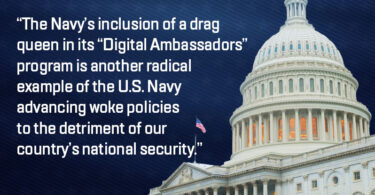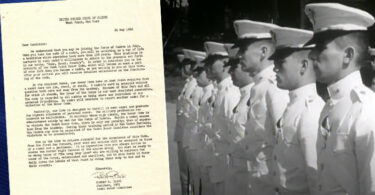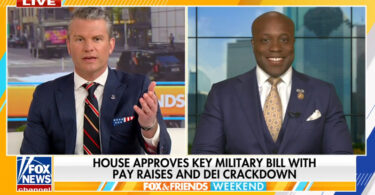By Phillip Keuhlen, Commander, USN (Ret), USNA ’71
An oath of office has been a feature of U.S. military service since before our nation’s founding with several versions approved by the Continental Congress. But since 1789, in the oath specified by the first Congress of the newly constituted United States of America, the central, unending promise made by officers of the U.S. armed forces has been to “support and defend the Constitution of the United States ….”
This is unusual. Other nations’ militaries take oaths to defend their sovereign, their mother/fatherland, or their people. In two notable exceptions, where officers of other countries do take oaths mentioning their country’s constitution, the oaths require them to “comply with” (Russia) or “be loyal to” (China) their constitutions, not profess an affirmative responsibility to defend their constitution.
An officer ought to note this difference, understand the basis of the oath, and contemplate the responsibilities undertaken by it. A key resource for this purpose is the DOD publication, THE ARMED FORCES OFFICER (TAFO). In discussion of the American tradition of the citizen-soldier, the authors note that,
“….today’s armed forces officer is a champion of both the nation’s defense and the principles upon which the nation was founded. Taking an oath to support and defend the Constitution means swearing to uphold the core values that define the essence of American citizenship; the armed forces officer is first and foremost a citizen who has embraced the ideals of the nation – only then can he or she defend those principles with true conviction.” (Emphasis added)
The Constitution defines a compact of the people for a form and process of governance designed to protect and fulfill the principles stated in The Declaration of Independence. The First Principles of the American founding are contained in two elegant sentences:
“We hold these truths to be self-evident, that all men are created equal, that they are endowed by their Creator with certain inalienable Rights, that among these are Life, Liberty, and the pursuit of Happiness. – That to secure these rights, Governments are instituted among Men, deriving their just powers from the consent of the governed.”
TAFO does not delve deeply into the origin or meaning of these principles, but simply describes them as universal principles concerning the proper relationship between citizens and the nation. It focuses on service by an officer to the sovereign people through civilian control of the military established in the Constitution. We will return to the TAFO guidance shortly. However, it is appropriate to first discuss the meaning of these First Principles each officer must embrace and defend.
The Founders were deeply imbued with the philosophy of natural rights associated with English philosopher John Locke. The Declaration affirms there are universal and unchanging truths about what is right and moral (natural rights) that arise from the existence of a perfect Creator and can be understood by the application of reason to the natural law revealed by the Creator.
The First Principles stated by the Founders are enshrined as the first organic law in the U. S. Code and declare our rights are individual rights; that they are shared by all mankind; that they are conferred by our Creator, not by any state; and that they are ours by right, not bestowed by our government.
The Declaration proclaims these truths incontrovertible, requiring no defense. It defines the legitimate function of government as securing the natural rights of individual citizens, and states that the power of government to secure those natural rights derives only from the consent of the people. These are the principles on which the Republic was founded and that every officer has sworn to defend.
DOD guidance in the TAFO acknowledges the role of the officer as a champion of the founding principles defended by the Constitution, but gives primacy to the tradition of civilian control of the military that arises from the constitutional authority of the President as the Commander-in-Chief, acting according to the laws and regulations enacted by the Congress. It provides this guidance:
“The American officer must refrain from individual interpretations of the Constitution. To be a “Defender of the Constitution and Servant of the Nation,” officers must promptly and effectively obey the chain of command, regardless of political party or ideological bent. An officer’s duty must be to implement state policy and to execute without challenge the lawful orders of elected leadership, reserving advice for legitimate forums and restricting it to matters of professional competence. Officers must not publicly question the effectiveness or validity of national policy.”1
Acknowledging this guidance, serving officers are guided by DOD to subordinate their personal beliefs about the Constitution to the policies established by the civilian leadership and the implementing orders issued by the chain of command. Such guidance notwithstanding, officers cannot escape their moral responsibility to support and defend both the Constitution and the principles enumerated in the Declaration.
Officers have several legitimate courses of action if they have reservations about actions, policies or orders in either regard.
- They have a duty to advise their superiors if they understand an action, policy or practice constitutes an adverse effect, whether their concern arises from constitutionality, lawfulness, or any other basis. By training and experience, officers have the professional competence to make recommendations about matters affecting the military effectiveness of their units, for both technical matters and non-technical factors such as trust, morale and unit cohesiveness. However, unless an order will result in manifestly illegal actions (e.g., genocide or other war crimes), they are obligated to carry out the order to the best of their ability after providing recommendations.
- They have the right to communicate with their representatives in Congress. Such communication must be in their capacity as a citizen, not in an official capacity.
- They have a duty to respond forthrightly and completely regarding their professional views when called upon to provide them by constitutionally empowered authorities such as members of Congress (e.g.;Crenshaw.house.gov/whistleblower).
- The have the right to submit reports (on the record or anonymously) of unlawful or unethical actions to IG or to EEO organizations within the service or to act as “whistleblowers” under appropriate statutes.
- They have the right as citizens to challenge by litigation policies or practices they believe unlawful or unconstitutional.
- They have the right to resign their commission stating the cause(s), and freely publicize their resignation and its cause(s) once accepted and separated.
An officer courageously taking any such action must understand the potential for repercussions, in spite of statutory protections.
1.The Armed Forces Officer, Department of Defense, Electronic Publication, January 2006, Chapter 4, Page 38








Leave a Comment